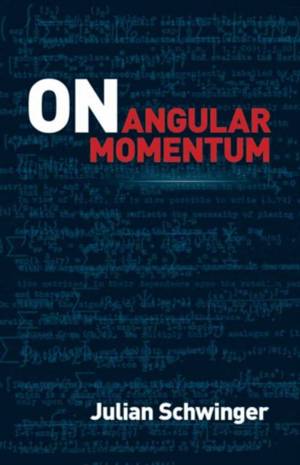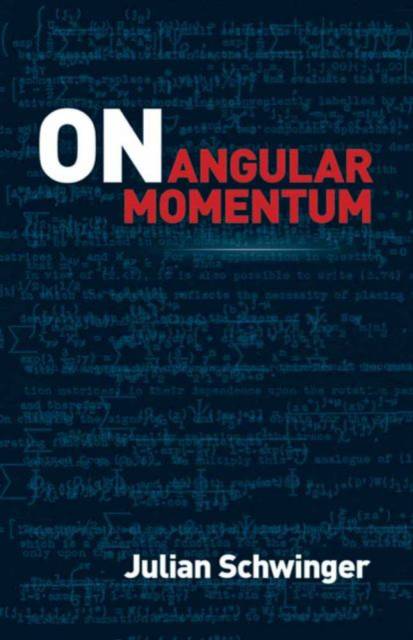
- Afhalen na 1 uur in een winkel met voorraad
- Gratis thuislevering in België vanaf € 30
- Ruim aanbod met 7 miljoen producten
- Afhalen na 1 uur in een winkel met voorraad
- Gratis thuislevering in België vanaf € 30
- Ruim aanbod met 7 miljoen producten
Zoeken
€ 12,95
+ 25 punten
Omschrijving
A concise treatment of angular momentum by an important American physicist, this major work was first published under the auspices of the United States Atomic Energy Commission in 1952 and is finally available to a general audience of students and professionals in the field. Advanced undergraduates and graduate students of physics will particularly benefit from its teachings.
One of the most prominent American physicists of the twentieth century, Julian Schwinger (1918-94) taught at Harvard, MIT, and UCLA, among other institutions. In addition to his many other awards, Schwinger, jointly with Richard Feynman and Shinichiro Tomonaga, received the Nobel Prize in Physics in 1965 for his work in quantum electrodynamics.
One of the most prominent American physicists of the twentieth century, Julian Schwinger (1918-94) taught at Harvard, MIT, and UCLA, among other institutions. In addition to his many other awards, Schwinger, jointly with Richard Feynman and Shinichiro Tomonaga, received the Nobel Prize in Physics in 1965 for his work in quantum electrodynamics.
Specificaties
Betrokkenen
- Auteur(s):
- Uitgeverij:
Inhoud
- Aantal bladzijden:
- 64
- Taal:
- Engels
- Reeks:
Eigenschappen
- Productcode (EAN):
- 9780486788104
- Verschijningsdatum:
- 18/02/2015
- Uitvoering:
- Paperback
- Formaat:
- Trade paperback (VS)
- Afmetingen:
- 135 mm x 211 mm
- Gewicht:
- 77 g

Alleen bij Standaard Boekhandel
+ 25 punten op je klantenkaart van Standaard Boekhandel
Beoordelingen
We publiceren alleen reviews die voldoen aan de voorwaarden voor reviews. Bekijk onze voorwaarden voor reviews.











